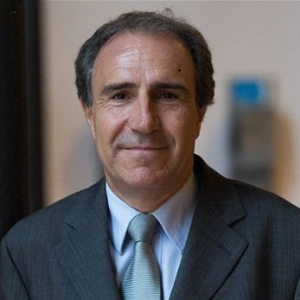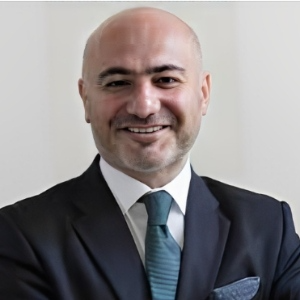Arthur J Siegel, Massachusetts General Hospital, United States
While habitual endurance exercise such as training for a marathon is quintessentially cardioprotective, running such a race paradoxically confers a transiently increased risk for cardiac arrest and sudden death. The frequency of such events increased significantly in United State [....] » Read More
























































































Title : Novel important cellular responses, signaling mechanisms and therapeutic options for pulmonary hypertension and right heart failure
Yong Xiao Wang, Albany Medical Center, United States
As a common and devastating lung disease, pulmonary hypertension (PH) has a significant rate of both morbidity and death mortality. The current primary interventions for this disease are to use non-specific vasodilators, but patients do not always respond well to these non-specif [....] » Read More
Title : The past, present and future of AI in cardiology
Narendra Kumar, HeartbeatsZ Academy, United Kingdom
Artificial Intelligence (AI) is transforming cardiovascular medicine by enhancing diagnostic accuracy, treatment selection, and patient outcomes. Machine learning algorithms now analyse complex cardiac imaging with superhuman precision, detecting subtle patterns in echocardiogram [....] » Read More
Title : The development of human relaxin-2 for heart failure with preserved ejection fraction, HFpEF
Thomas Bernd Dschietzig, Relaxera GmbH & Co. KG, Germany
Human relaxin-2 (hRlx-2) is a hormone of pregnancy that has engendered a great deal of interest as a therapy for various cardiovascular and inflammatory diseases, among them Acute Heart Failure and Systemic Scleroderma. Here, we propose and summarize data showing that Rlx-2 repre [....] » Read More
Title : Ex-situ organ perfusion and cardiac performance improvement
Y J H J Taverne, Erasmus University Medical Center, Netherlands
Cardiac transplantation remains the golden standard for patients with end-stage heart failure when therapeutic approaches and interventions fail to reverse HF progression. Traditionally, hearts are transplanted from brain-death (DBD) donors where the heart is beating at time of p [....] » Read More
Title : Personalized and Precision Medicine (PPM) as a unique healthcare model through biodesign-driven and inspired biotech, translational applications and cardiology-related marketing to secure the human healthcare, wellness and biosafety
Sergey Suchkov, N. D. Zelinskii Institute for Organic Chemistry of the Russian Academy of Sciences, Russian Federation
A new systems approach to diseased states and wellness result in a new branch in the healthcare services, namely, Personalized and Precision Medicine (PPM). To achieve the implementation of PPM concept, it is necessary to create a fundamentally new strategy based upon the recogni [....] » Read More
Title : Use of mitochondrial ROS inhibitor to protect coronary microvascular/endothelial function
Jun Feng, Alpert Medical School of Brown University, United States
Cardioplegic ischemia/reperfusion (I/R), hypoxia/re-oxygenation (H/R) and diabetes mellitus (DM) are associated with increased oxidative stress which contribute to coronary microvascular/endothelial dysfunction. Mitochondrial reactive oxidative species (mROS), a major source of R [....] » Read More
Title : A potent inhibitor of aminopeptidase P2 greatly reduces reperfusion injury in models of myocardial infarction and stroke
William H Simmons, Loyola University Chicago Medical Center, United States
Tissue that undergoes ischemia followed by reperfusion is subject to extensive damage. Reperfusion itself is responsible for at least 50% of the total tissue damage. There is currently no effective way to prevent this reperfusion injury. However, during ischemia and reperfusion, [....] » Read More
Title : Heart of stone: A rare case of incidentally detected endocardial calcification
Vaibhav Sharma, St. Louis Heart and Vascular, United States
Background: Endocardial calcification is a rare cardiac condition with limited documented cases, particularly in non-tropical regions. This case report explores an unusual presentation of incidental endomyocardial calcification in a patient without typical predisposing systemic d [....] » Read More
Title : Green alert: Myocardial infarction triggered by marijuana use
Vaibhav Sharma, St. Louis Heart and Vascular, United States
Background: The cardiovascular implications of marijuana use have gained increasing attention in recent medical literature. While chronic cannabis consumption has been linked to various cardiovascular events, comprehensive documentation of acute myocardial infarction in young adu [....] » Read More
Title : Myocarditis in desmoplakin cardiomyopathy: A misdiagnosed entity or a distinct phenotype?
Natasha Ghalib, Case Western Reserve University, United States
Background: Desmoplakin (DSP) cardiomyopathy is a distinct form of arrhythmogenic cardiomyopathy (ACM), often presenting with left-dominant or biventricular involvement. A subset of these patients exhibits a myocarditis-like phenotype, characterized by acute chest pain, troponin [....] » Read More
Title : Resource utilization and outcomes in surgical turndown patients undergoing either orbital or rotational atherectomy
Hassan Saleh, NewYork-Presbyterian Hospital / Weill Cornell Medical Center, United States
Patients with surgical anatomy turned down for coronary artery bypass surgery often have complex disease and high-risk features. We identified all patients who underwent either orbital (OA) or rotational atherectomy (RA) at our institution between January 2021 and December 2024, [....] » Read More
Title : Increased left ventricular mass as a marker of left ventricular hypertrophy in normotensive type 2 DM patients
Mohamed Mahmoud, Countess of Chester NHS Foundation Trust, United Kingdom
Diabetes is one of the most important metabolic conditions causing Left Ventricular (LV) dysfunction, one of which is Left Ventricular Hypertrophy (LVH). Increased Left Ventricular Mass (LVM) and Left Ventricular Mass Index (LVMI) are significant predictors of LVH. Aim This study [....] » Read More
Title : A rare dual cardiac anomaly: Quadricuspid aortic valve and wenckebach AV block
Lilia Lagha, Frimley Health NHS Foundation Trust, United Kingdom
Quadricuspid Aortic Valve (QAV) is an exceptionally rare congenital cardiac anomaly characterized by the presence of four cusps instead of the usual three, often leading to valvular dysfunction. Equally intriguing, Mobitz type I second-degree Atrio Ventricular (AV) block, or Wenc [....] » Read More
Title : Diagnosis and management of infective endocarditis in a district general hospital: A retrospective review (2020–2024)
Patrick Hurley, University Hospitals Dorset, United Kingdom
Background: Infective Endocarditis (IE) remains a complex and life-threatening condition with evolving epidemiology and diagnostic challenges. This study aims to characterise the presentation, management, and outcomes of IE in a non-surgical District General Hospital (DGH) settin [....] » Read More
Title : Epoprostenol infusion in pulmonary hypertension: A case of mechanical complication and management
Ali Elshamy, Northampton General Hospital, United Kingdom
Introduction: Pulmonary hypertension is a chronic progressive disease characterized by raised pulmonary vascular resistance ultimately leading to right sided heart failure. Amongst the current available options for treatment, Epoprostenol has been widely proven to improve sy [....] » Read More
Title : Correlation of troponin and homocysteine levels with coronary artery disease in patients on hemodialysis - A preliminary study
Sofra Maria, Aretaieion University Hospital, Greece
Background and Aims: The aim of this study is to investigate the association of troponin and homocysteine levels with coronary artery disease and the cardiovascular risk in patients with end stage kidney disease (ESKD). Methods: 50 patients on HD > 6 months (mean duration 3 [....] » Read More
Title : Correlation of homocysteine levels with lipid profile and coronary artery disease in patients with chronic kidney disease under hemodialysis - Preliminary findings
Sofra Maria, Aretaieion University Hospital, Greece
Background and Aims: Patients with end-stage chronic kidney disease (ESRD) exhibit disturbances in protein and amino acid metabolism and elevated homocysteine levels. The latter has been implicated as an independent risk factor for cardiovascular events in these patients. The aim [....] » Read More
Title : Minimal invasive pediatric and adult congenital cardiac surgery
Y J H J Taverne, Erasmus University Medical Center, Netherlands
Full midline sternotomy remains the most common incision to correct congenital cardiac defects. Although many minimal invasive programs exist for the adult population worldwide, only a few centers have adopted such a program for the pediatric population. The rise of novel interve [....] » Read More
Title : The promising future of the unique translational tool to manage self-renewal of cardiac cells and to support regeneration in the post-infarction period
Sergey Suchkov, N. D. Zelinskii Institute for Organic Chemistry of the Russian Academy of Sciences, Russian Federation
The approaches securing cardiac regeneration in post-infarction period are not available to be practiced. The key problem is the identity of cells be born to generate functionally active cardiac myocytes replenishing those being lost during ischemia. With identification of reside [....] » Read More
Title : Multiple cerebral infarcts caused by left ventricular thrombus: A multidisciplinary challenge
Sara Ismail Abdelhalim Ismail, Al-Sabah Hospital-Medical, Kuwait
Introduction: Left ventricular (LV) thrombus accounts for up to 10% of cardioembolic strokes. It is frequently observed in patients with a history of myocardial infarction, particularly those with anterior STEMI, reduced left ventricular ejection fraction (LVEF), non-ischemic car [....] » Read More
Title : Atherogenic index of plasma as a risk stratification tool in patients with chronic coronary syndromes undergoing percutaneous coronary intervention
Xiaodi Ji, Fuwai Hospital, China
Background: The atherogenic index of plasma (AIP) is a new indicator associated with abnormalities in lipid metabolism. This study aims to explore the relationship between AIP and the risk of major adverse cardiovascular events (MACE) in patients with chronic coronary syndromes ( [....] » Read More
Title : Chinese herbal medicine effectively improves the composite outcome of repeat revascularization and in-stent restenosis in chronic coronary syndromes patients undergoing percutaneous coronary intervention
Xiaodi Ji, Fuwai Hospital, China
Background: Chinese herbal medicines (CHM) are gaining attention as complementary and alternative therapies for cardiovascular diseases. This study aims to explore the efficacy and favorable population of CHM in reducing the risk of major adverse cardiovascular events (MACE) in p [....] » Read More
Title : Left atrioventricular coupling index as a novel prognostic marker of adverse events in heart transplant patients
Chun Wu, Huazhong University of Science and Technology, China
Purpose: Decreased diastolic(DD) function may be one of the early manifestations of acute rejection after heart transplantation. Left atrioventricular coupling index (LACl) is associated with DD severity. The purpose of this study was to investigate the novel prognostic value of [....] » Read More
Title : Temporal profile of RV and LV wall deformation analysis using 2D Speckle Tracking Echocardiography (STE) following ASD closure
Shahnawaz Ahmed, SGPGIMS Lucknow, India
Background: It is important to analyse the temporal profile of recovery of RV & LV wall strain parameters following ASD closure. Objectives: The aim of this study is to analyze the acute & short-term changes after atrial septal defect (ASD) closure by evaluating the RV [....] » Read More
Title : Unusual faces of pericardial effusion: A case series of suppurative, neoplastic, and disseminated tuberculous etiologies
Riya Hamid Mansuri, DY Patil University School of Medicine, India
Background: Pericardial effusion, though commonly encountered in clinical cardiology, can stem from a multitude of causes—some of which are rare, aggressive, or easily missed. This series showcases three challenging cases from young patients presenting with tamponade physio [....] » Read More
Title : Cardiac cirrhosis and portal hypertension in an undiagnosed adult atrial septal defect: A rare presentation
Sai Prasad, S Nijalingappa Medical College Bagalkot, India
Background: Atrial Septal Defect (ASD) is a congenital cardiac anomaly that may remain clinically silent until adulthood, potentially progressing to serious complications if undiagnosed. Case Summary: We report a rare case of a 36-year-old female who presented with anemia, gen [....] » Read More
Title : A rare and fatal complication of dengue fever: Spontaneous coronary artery dissection
Umar Badshah, Saidu Teaching Hospital, Pakistan
Dengue fever, a tropical disease characterized by fever, haemorrhagic manifestations, and organ impairment, can have rare and fatal complications. We report a case of spontaneous coronary artery dissection (SCAD), a rare but potentially fatal complication of Dengue fever. We repo [....] » Read More
Title : Seizure-like episode unmasking torsade’s de pointes: A rare presentation of an arrhythmic emergency
Kanchan Kanchan, Birmingham Heartlands Hospital, United Kingdom
We present the case of a 40-year-old male who experienced a seizure-like episode, later diagnosed as torsade's de pointes (TDP), highlighting the diagnostic and management challenges of this atypical presentation. The episode characterized by generalized shaking without tongu [....] » Read More
Title : Transient ST-elevation MI diagnosed by holter monitoring
Nabihah Hussaini, University Hospital Lewisham, United Kingdom
Presentation: A 54-year-old woman was referred with an 8-week history of pressure sensations over the chest and epigastrium unrelated to exertion. She presented to the Emergency Department 4 weeks prior but self-discharged against medical advice due to the long wait time. Diag [....] » Read More
Title : Caught in a red and blue squeeze: A plaque-free coronary crisis
Zoya Khan, Lakeland Regional Health, United States
Introduction: Anomalous origin of the right coronary artery (RCA) is a rare congenital condition, accounting for less than 1% of coronary anomalies. While many patients are asymptomatic, the anomalous course can lead to myocardial ischemia through external compression rather than [....] » Read More
Title : Hidradenitis suppurativa in cardiac transplant recipients: Implications of immunosuppression on disease activity and clinical outcomes
Natasha Ghalib, Case Western Reserve University, United States
Background: Hidradenitis suppurativa (HS) is a chronic, relapsing inflammatory skin disease affecting apocrine gland-bearing regions and characterized by painful nodules, abscesses, and sinus tract formation. Although traditionally considered a dermatologic condition, emerging ev [....] » Read More
Title : Assessing referral and participation in cardiac rehabilitation following coronary artery disease
Mohamed Mahmoud, Countess of Chester NHS Foundation Trust, United Kingdom
Background: Cardiac Rehabilitation (CR) is a well-established secondary prevention strategy that plays a pivotal role in improving cardiovascular outcomes for patients with Coronary Artery Disease (CAD). It has been shown to reduce mortality, recurrent cardiac events, and hospita [....] » Read More
Title : A novel role for microcephaly - Associated scaffold protein WDR62 in postnatal cardiac physiology
Slade du Randt, The University of Queensland, Australia
Cardiovascular diseases are the leading causes of death worldwide. The proliferative capability of the contractile cells of the heart (cardiomyocytes), decreases after birth and damage to mature cardiomyocytes result in fibrotic scar formation driven by cardiac fibroblasts and di [....] » Read More
Title : Evaluation of echocardiography appropriateness in acute medical unit: A retrospective cohort study
Ahmad Zainal Mazlam, St James's Hospital, Ireland
Background: Echocardiography is a widely used diagnostic tool in Acute Medical Units (AMUs), but its inappropriate use can strain healthcare resources. The Appropriate Use Criteria (AUC) for echocardiography, developed by the American College of Cardiology (ACC) and the American [....] » Read More
Title : Changes on sleep quality after treatment of mandibular advance device for sleep apnea: 24-hour holter-based cardiopulmonary coupling analysis
Jin Oh Na, Korea University Guro Hospital, Korea, Republic of
Background: The purpose of this study is to report the treatment effects of mandibular advance device (MAD) on patients with sleep apnea based on cardiopulmonary coupling (CPC) analysis. Method: Patients with mild to moderate obstructive sleep apnea were enrolled in a prospect [....] » Read More
Title : Pericardial decompression syndrome post pericardiocentesis in a case of miliary and disseminated tuberculosis in a young male presenting with cardiac temponade
Riya Hamid Mansuri, DY Patil University School of Medicine, India
Background: Pericardial effusion and cardiac tamponade encompass a clinical spectrum with diverse presentations. While significant pericardial effusions warrant clinical attention, emergent drainage is primarily indicated for patients exhibiting hemodynamic compromise. Cardiac ta [....] » Read More